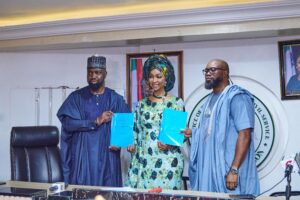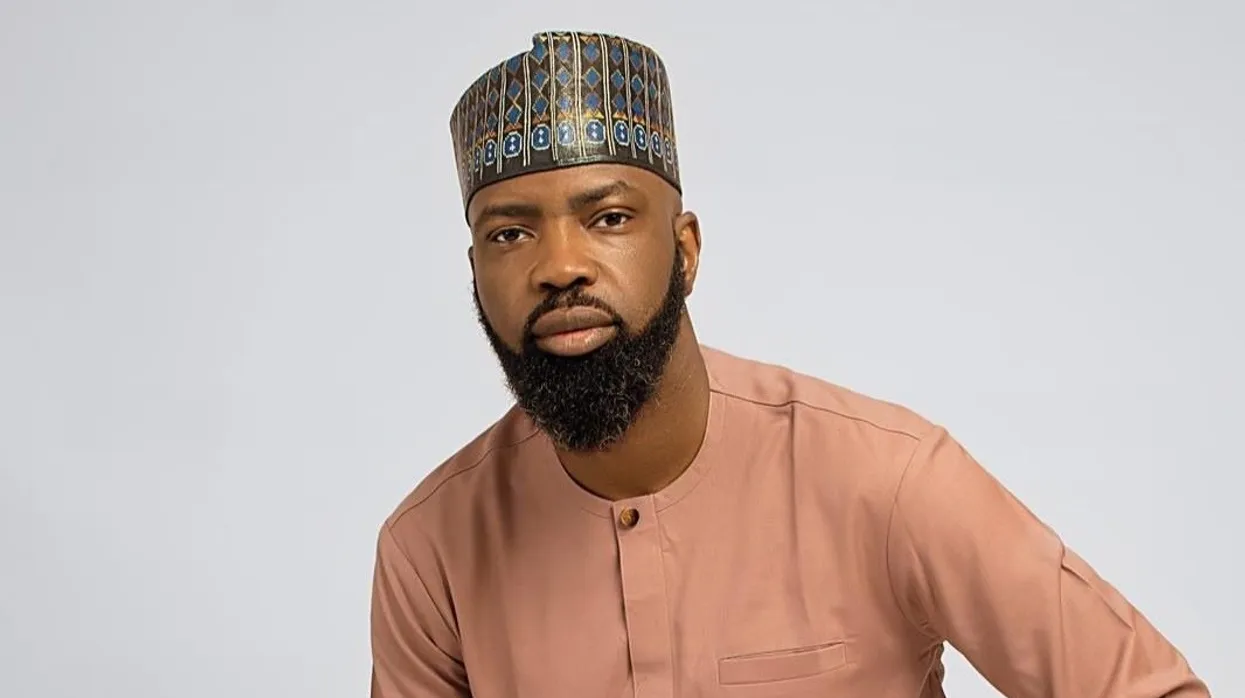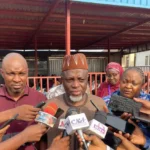By Yusuf Mohammed
For many Afrobeats lovers around the world, the phrase “Audu Maikori is my guy,” a line from Ice Prince’s hit song Aboki, readily comes to mind when they hear the name Audu Maikori. It’s a fitting tribute to a man whose name has become synonymous with success in Nigeria’s music and entertainment industry.
Audu Maikori’s journey is one of grit, vision, and relentless determination. As the co-founder of Chocolate City alongside Paul Okeugo, he helped shape the trajectory of Nigerian music, launching the careers of A-list artists such as M.I Abaga and Ice Prince. Chocolate City soon became a cultural force, dominating the entertainment landscape while Maikori emerged as a respected thought leader, frequently speaking at global events and granting high-profile interviews. He was, quite literally, everywhere.
Then, just as he was at the mountain top, Maikori stepped away from the spotlight. His absence was deeply felt, particularly by aspiring creatives and entrepreneurs who saw in him a blueprint for success built on transparency, hard work, and consistency.
Today, in a time when the average Nigerian youth grapples with uncertainty and a sense of national stagnation, the return of Audu Maikori is more than just good news, it’s symbolic. And indeed, Audu Maikori is back. With a bang.
In September 2024, to mark Chocolate City’s 20th anniversary, the company announced a $1 million fund dedicated to empowering Nigerian creatives. Speaking on ARISE NEWS, Maikori and Okeugo explained that the fund is their way of giving back to the industry that birthed their success.
One defining feature of the initiative is that 50% of the fund is earmarked for female entrepreneurs. “That should be the standard,” Maikori explained. “We know how challenging it can be for women to access funding. Many face harassment simply for trying to do something great. Women are the backbone of our economy, especially in the SME space, and they deserve equal access.”
The fund will initially focus on Nigeria, with plans to scale across Africa. Its primary targets? Music, food, content creation, and gaming/e-sports—sectors that are not only scalable but offer significant employment opportunities for young people.
“For us, it’s simple,” Maikori said. “We had to struggle and fight to build what we have. Our legacy should be making it a little easier for the next generation. Let them solve new problems—we’ll help with the ones we’ve already overcome.”
This bold return was followed by another major milestone. On April 18, 2025, Nigeria’s Federal Ministry of Arts, Culture, Tourism, and the Creative Economy (FMACTCE) announced a three-year strategic partnership with Chocolate City Group. A Memorandum of Understanding signed in Abuja outlined a comprehensive plan to develop Nigeria’s creative economy.
The collaboration will focus on four key areas:
- Building small-scale live arenas across the country
- Nurturing emerging talent
- Creating global distribution channels for Nigerian content
- Strengthening intellectual property protections
At the signing ceremony, Minister Hannatu Musa Musawa emphasized the sector’s vast potential: “Our creative industries can drive GDP growth, job creation, and foreign investment. This partnership shows our commitment to building sustainable creative ecosystems that empower Nigerian talent.”

Maikori emphasised on the timeliness of the initiative, noting that Nigeria’s music industry now generates an estimated $2 billion annually, a notable share of the global $26 billion music economy. “Afrobeats has become our most powerful cultural export, opening doors globally. But to sustain this momentum, we need infrastructure, distribution, and policy support.”
Paul Okeugo echoed this, emphasizing the economic multiplier effect of developing creative infrastructure. “When we build performance venues, we’re not just supporting artists, we’re creating jobs for engineers, managers, security personnel, hospitality workers, and more. This partnership allows us to scale these opportunities nationwide while protecting creators’ rights.”
The initiative will be managed by a Joint Working Committee of representatives from both Chocolate City and the Ministry. Outcomes will include empowering local creatives, enhancing global reach, fostering entrepreneurship, and building vital infrastructure.
The timing couldn’t be more significant. The partnership aligns with the Federal Ministry’s Nigeria Destination 2030 initiative, a long-term vision to transform the country into a global hub for tourism, cultural exchange, and creative innovation. The plan involves sweeping policy reforms, infrastructure investment, and strategic collaborations designed to promote Nigeria’s cultural heritage and diversify the economy.
As for Chocolate City Group, the company has grown far beyond its music label roots. Founded in 2005, it now operates across music production, artist management, publishing, creative infrastructure, and consultancy.
In all of this, Audu Maikori’s return feels not just like a comeback, but a renaissance for himself, for Chocolate City, and for the entire Nigerian creative economy.






